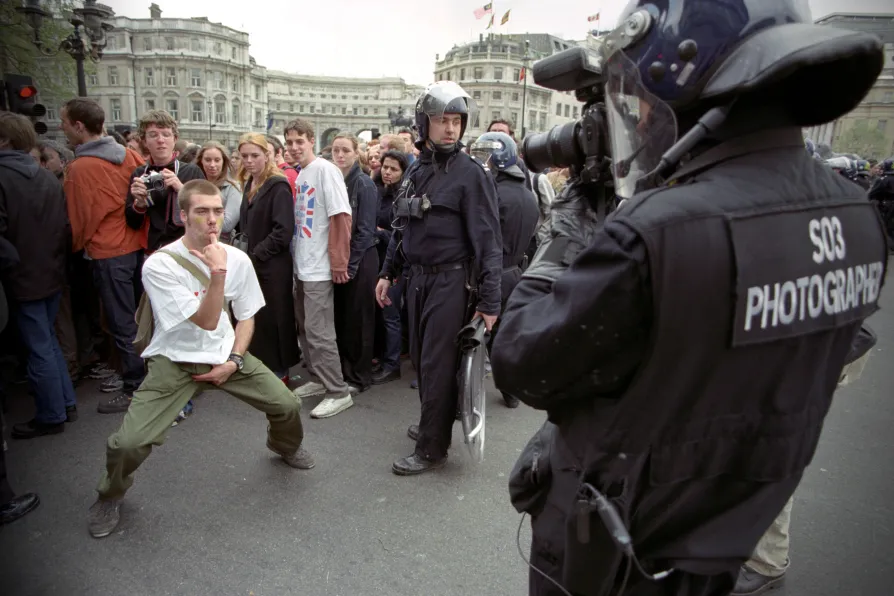As figures from Tucker Carlson to Nigel Farage flirt with neofascist rhetoric and mainstream leaders edge toward authoritarianism through war and repression, the conditions that once nurtured Hitlerism re-emerge — yet anti-war and anti-imperialist sentiments are also burgeoning anew, writes ANDREW MURRAY

 An anti-capitalist protester taunts a police camera team, 1 May 2000
An anti-capitalist protester taunts a police camera team, 1 May 2000
THE proliferation of CCTV cameras across Britain over the past couple of decades has been amazing to behold.
There are now estimated to be more than 4.2 million cameras operating in the UK, one camera for every 14 people.
London is one of the most watched cities in the world, with more than 500,000 cameras in operation.

Digital ID means the government could track anyone and then limit their speech, movements, finances — and it could get this all wrong, identifying the wrong people for the wrong reasons, as the numerous digital cockups so far demonstrate, warns DYLAN MURPHY

From Gaza protest bans to proscribing Palestine Action, political elites are showing a crisis of confidence as they abandon Roy Jenkins’s apologetic approach for Suella Braverman’s aggressive ‘hate march’ rhetoric, writes PAUL DONOVAN

While claiming to target fraud, Labour’s snooping Bill strips benefit recipients of privacy rights and presumption of innocence, writes CLAUDIA WEBBE, warning that algorithms with up to 25 per cent error rates could wrongfully investigate and harass millions of vulnerable people











